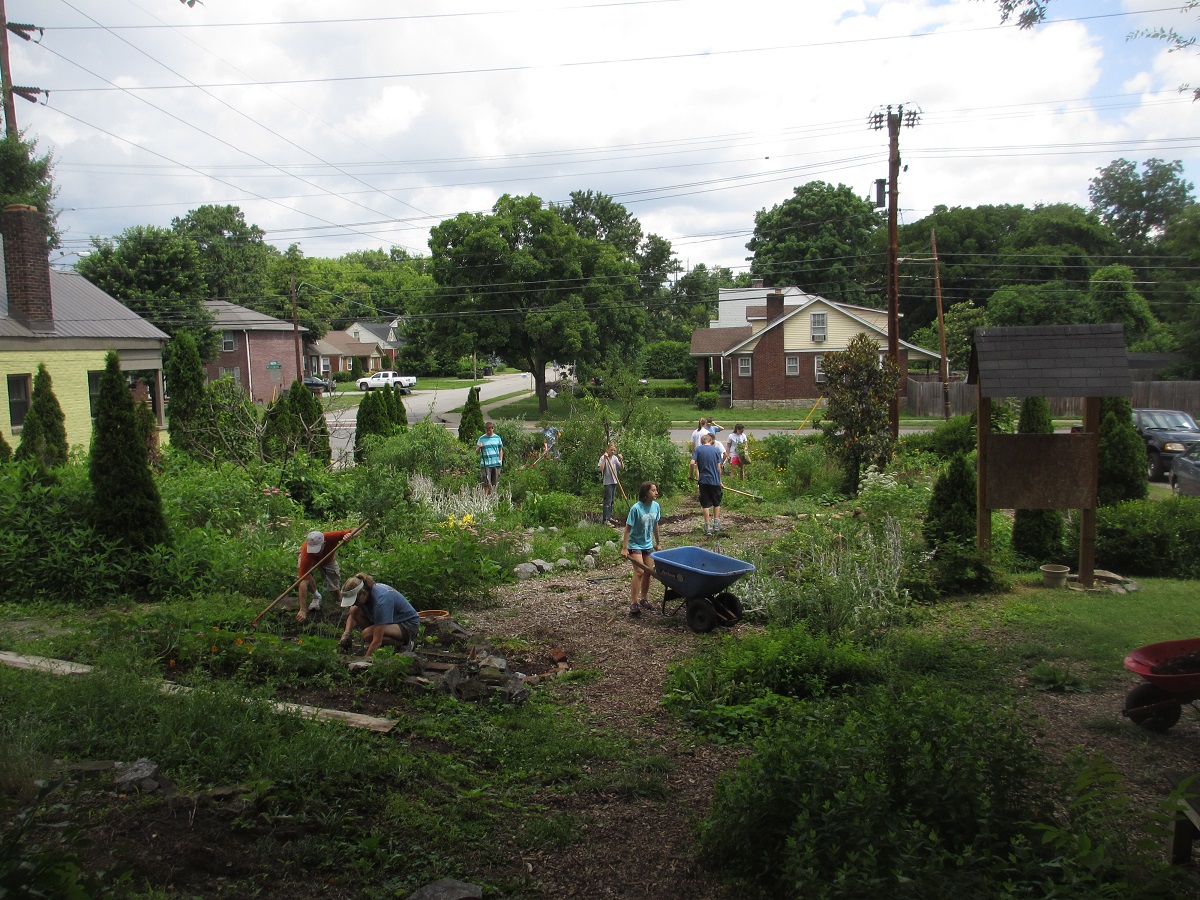By TNFP garden intern, Sarah Tolbert
Sarah at TNFP’s Wedgewood Urban Gardens
A book and a garden, though seemingly unbridgeable, altered the course of my thinking and life.
In my junior year, an independent project led me to James Baldwin’s The Fire Next Time and marked the beginning of an insatiable desire to pursue a more just and equitable society; I am certain this book changed my life. As I sat in my room devouring Baldwin’s words, his eloquence in discussing racial disparities perplexed me, and I was moved to tears. From his words, I grew aware of the deliberate distance history facilitated between whites and blacks. Deeply rooted fears and insecurities bred methods of segregation, violence, and discrimination, thus a habit of isolation has permeated deeply into American society. I remember Baldwin saying that you are formed by what you have seen, and I remember feeling lost upon realizing that my childhood had sheltered me from seeing the disparities and hatred of which he so vividly speaks. Frankly, my failure to notice bothered me.
The urgency of Baldwin’s words galvanized me into doing a summer internship with a nonprofit called The Nashville Food Project, combining social justice with my passion for gardening. The mission of the Food Project is to grow, cook, and share nourishing foods with the goals of cultivating community and alleviating hunger in Nashville. TNFP develops sustainable garden practices and community garden spaces in areas vulnerable to marginalization. During my internship, I witnessed Baldwin’s words coming to life. I began to realize that these things for which I care-- gardening, confronting climate change, and food-- have become exclusive in and of themselves in my own community. I learned that nourishing foods tend to be reserved for communities of wealth and privilege, and that marginalized communities are the ones most impacted by the effects of climate change. I began to understand that the reason why I passed a Whole Foods in my neighborhood and a discount supermarket on the way to work was a result of the disparities Baldwin described. And from this, one of the darkest realizations haunted me: this history of violence, hatred, and marginalization has permeated so deeply as to even reach the gardens in which we grow our food.
Still, some of Baldwin’s words offered hope. He spoke of the deep need humans have for each other to become a nation, to achieve our identity and maturity, and to become better as individuals. These words solidified for me the direction of my life. Processing and witnessing his words, I began to see my place in this narrative using the garden as a catalyst for social change. I understood that my place in this world is to use my love of gardening to correct disparities, because I learned that the garden is a beautiful place to cultivate community: the garden is a start. When working with my hands in the soil, I not only feel a physical connection to the earth, but a deeper connection with the community around me. I see the power that sharing food has in bringing people together, and in turn the power that growing food has in building community.
Gardening has not only reconnected me to my community, but also to my identity. Coming from a line of Tennessee farmers and gardeners, I have been able to identify with this part of my heritage and honor their legacy by learning how to grow food. The greatest honor I have given my family, though, has been in expanding their craft to include a broader audience. Farming in my family started as a self-sustaining pursuit. Today, I am transforming the implications of farming in my family to a cause greater than ourselves: to grow not only a meal, but to create a gathering around a table, a human connection, a stronger community. Ultimately, I hope to use these connections to improve the disparities of my community and the world around me.


